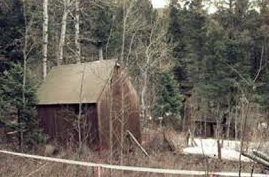Today’s question is a typical one. As a home buyer, you’ve successfully (conditionally) purchased a house, had the home inspection and the inspection has turned up some issues. Clients want to know what issues can be addressed and how to address them. Clients want to know how to negotiate after a home inspection.
It is rare for a home inspector to give a home a complete pass. They will always have recommendations for repair, updates (from the building code) and general advice on what can be done and how and when to do it. Most common of these are often:
1) Improve grading away from the house and extending downspouts to divert water away from the foundation.
2) Improve airflow and ventilation in the attic
Negotiation deal killers
As a buyer, you’ve come this far and unless the issues are great ones you likely want to proceed with your purchase.
In my experience, once the home inspection has been preformed, one of only five things can kill a deal
1) Mould (in the basement or attic)
2) Structural issues (including rising damp)
3) Cracked foundations (even though this can be repaired and warranted)
4) Unreasonable requests by buyers (ie. estimating the cost of repair too high)
5) Unreasonable response by sellers (i.e. take it or leave it)
What issues can you negotiate?
The rule of thumb regarding addressing issues found in the inspection is that any issues uncovered during the home inspection that would not have been evident during the viewing with your agent can be addressed with an amendment after the inspection. That means, that you and your agent are not suppose to be furnace experts so if the furnace is found to be in poor repair then you can ask to have it cleaned and serviced. On the other hand, another big ticket item is windows. The fact that they are 30 year old aluminum sliding windows would have been evident to you before you offered to buy the place so negotiating money for new windows is likely not going to work. At an open house or with your agent, you are not expected to stick your head up in the attic and look for mould or be carrying a moisture meter to look behind basement walls. At the same time, although you could, you are not expected to crank open all the windows to make sure the hardware is working.
It’s common sense and good judgement about what can be addressed and what should be addressed.
How to negotiate
There are four ways to address the issues found:
1) Allow the seller to repair and replace and provide receipts from professional and accredited contractors and businesses that the work will be done before closing
2) Calculate the cost of repair or replacement and amend the purchase price
3) The third way is to just accept the faults and firm up the sale.
4) Release yourself from the agreement, get your deposit back and move on
It important to note that the issues are addressed with an amendment and that the seller has to agree to it. If the sellers says “no way”, your conditional agreement to purchase the home will expire and the home will go back onto the open market. I always say that real estate is really a communication business and nowhere is open and honest communication more critical than at this point. (Hint: Don’t be a bully)
How can sellers help?
If you are getting ready to sell, here is a list of things that the home inspector will likely find and make recommendation on. If you can do these things proactively, you will have a better chance of sailing through the home inspection.
Outside:
Improve grading so that water moves away from the house
Extend downspouts (for the same reason)
Seal driveway
Trim trees away from house
Caulk around windows
Repoint chimney
Seal any foundation cracks
Install window wells around basement windows
Clean gutters and downspouts
Inside:
Replace any burned out lightbulbs
Install smoke detectors and Co2 detectors
Replace furnace filter
Clean vents
Add salt to water softener
Remove old paint and solvents
Clean out the attic, garage and crawl space
Replace electrical outlets near water sources with GFIs
Replace bathroom vents
Test the sump pump
Put dehumidifier in basement
Insure attic has proper ventilation






Hi Keith, love your website, has some really good stuff. With regards to this article about negotiating after an inspection, how realistic is it really though? By that I mean it’s a sellers market currently (and for awhile now). If an inspection comes up with some deficiencies in the house and you try to negotiate a lower price, wouldn’t the seller more than likely just say no as they know there’s a lineup of other buyers willing to buy it at the price the seller wants? Why would he lower the price he gets paid?
You’re right. Sellers currently have all the power. In fact, this post is mostly redundant now and into the foreseeable future as I think the number of home inspections preformed now is half of what they were a year ago.